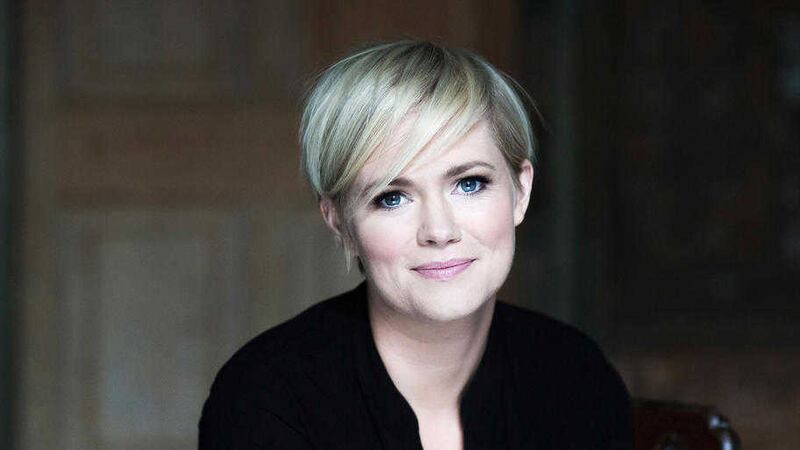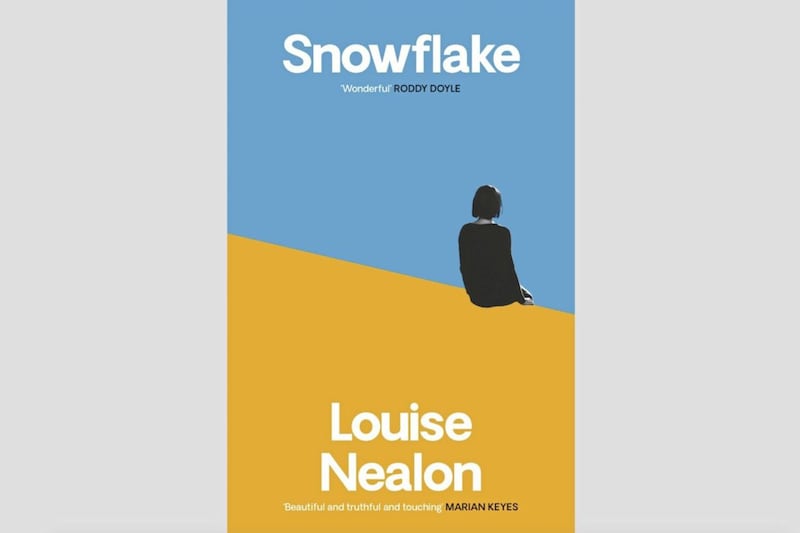YOUNG ADULT BOOK OF THE WEEK
Flawed by Cecilia Ahern, published in hardback by HarperCollins Children's Books
AN INTERESTING concept, Flawed takes place in a world where two justice systems run in tandem: the legal one we know, and another carried out by the red-cloaked Guild, which puts people on trial for their ethical and moral mistakes. Those deemed 'flawed' are branded with an 'F' administered by a red hot poker.
For Celestine North, this is just a part of everyday life, but then something happens to make her reconsider the status quo, and suddenly she realises she might not be as flaw-free as she thought.
In her young-adult-fiction debut – which she dedicates to her dad, former taoiseach Bertie – Ahern taps into all the current trends for the genre. There's a love triangle, an authoritarian organisation to overthrow and the certainty of a sequel (Perfect is due out this summer). It bills itself as "tenderhearted" but Ahern writes as though she's racing to get through it and writing-by-numbers.
She comments at speed on topics like freedom of speech, respect, segregation and corruption, when they need depth, nuance and fleshing out, attributes many of the characters lack too. A fascinating world that has so much scope, but it's been far too rushed.
Ella Walker
NON-FICTION
The Age Of Genius: The Seventeenth Century And The Birth Of The Modern Mind by AC Grayling, published by Bloomsbury
PHILOSOPHER AC Grayling explores a century of tumult and turmoil which, he argues, gave birth to modern thought in this weighty, yet readable work.
While British 17th century history lessons barely move past the English Civil War, the Restoration and the Great Plague/Fire of London, Grayling looks at the wider maelstrom of religious warfare and change that absorbed much of Europe.
He argues that, at the end of the 1600s, the shackles of religion, which had held back education, science and philosophy for so long had been loosened to allow new ideas to emerge.
This gave birth to advances in areas from physics to politics and laid the foundations for the subsequent Age of Enlightenment, which in turn led to where we are today. It may not leap into the holiday book bag, but Grayling's occasionally brash arguments are compelling in what is a fascinating look at where we come from.
David Wilcock
FICTION
BOOK OF THE WEEK
Hot Milk by Deborah Levy, published in hardback by Hamish Hamilton
EVERY so often you read a book whose author has so acutely captured the human condition in all its anxiety-fuelled, confused glory, it's almost painful to read.
Deborah Levy has done this and yet manages to elicit a sense of catharsis too – it's OK, we're all in the same leaky lifeboat.
Her narrator is 25-year-old half Greek, half Yorkshire anthropology student and barista Sofia, whose father has a new baby with a much younger woman and mother, Rose, has a mysterious paralysis of the legs, among other 'symptoms'.
Mother and daughter are in Spain, where Rose has spent a fortune to be seen by a private doctor. There Sofia meets Ingrid, a Berlin seamstress, with whom she begins a tempestuous affair.
Levy, who was Booker shortlisted for Swimming Home, deftly deals with the pull-push of mother-daughter bonds, identity, emerging sexuality, and the financial crisis. It's enough to put you in a state of mindfulness.
Kate Whiting
A Girl In Exile by Ismail Kadare, published in hardback by Harvill Secker
ALBANIA'S most internationally celebrated author here returns to the dying days of his country's Stalinist (and intermittently Kafkaesque) tyranny. Playwright protagonist Rudian Stefa is anxiously awaiting the authorities' approval of his latest work when he becomes involved in their investigation of a young internal exile's suicide.
The dead girl had one of Stefa's books, autographed to her, despite the two never having met. The only link between them seems to be Rudian's lover Migena... who has herself disappeared.
It's in the book's opening chapters, when it most resembles a historical thriller, that the novel is weakest; it's hard to care as Rudian's own self-absorption keeps entrapping him further, especially when he somehow keeps dodging the worst of the consequences which should follow.
But once we finally get closer to the heart of the mystery, mythic allusions and one horribly convincing central concept confer a new power on an increasingly unusual tale.
Alex Sarll








